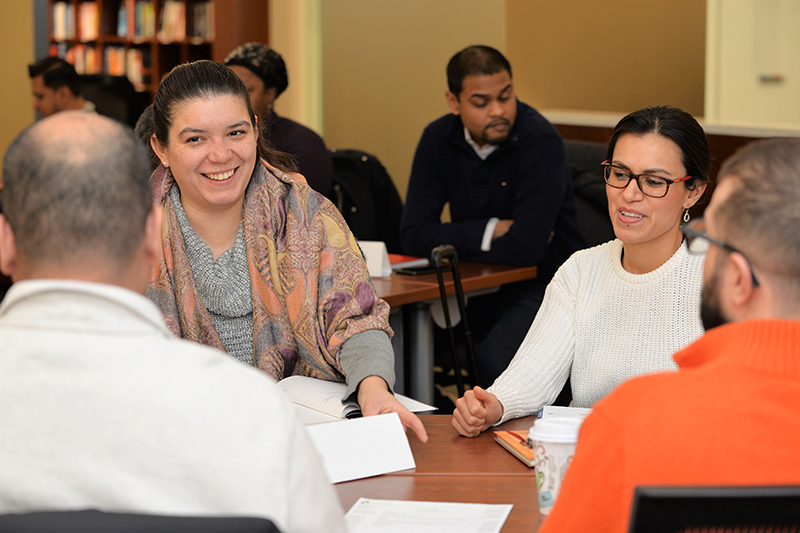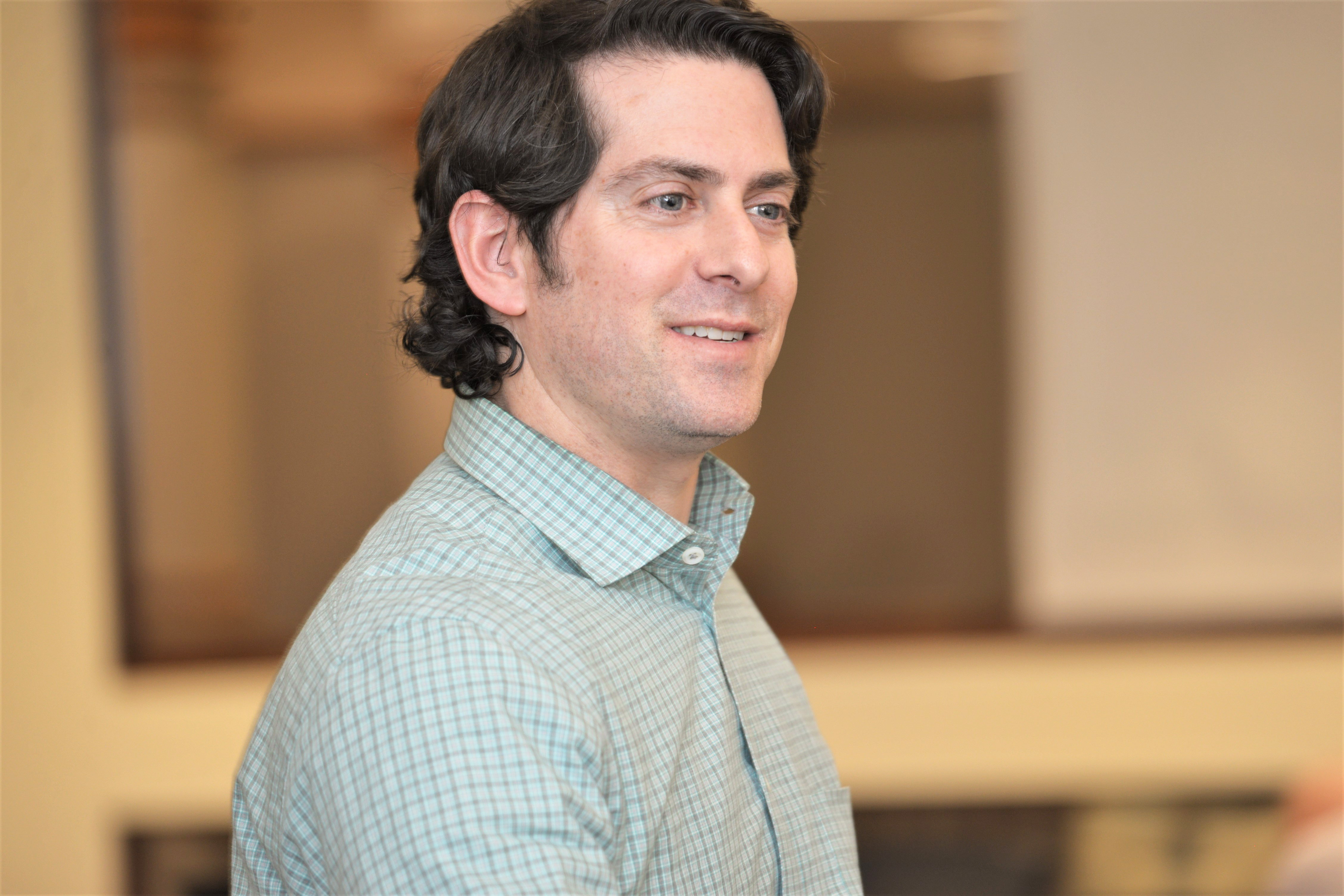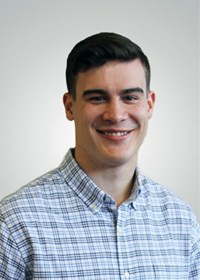 The Founder Institute and the Coleman Entrepreneurship Center are hosting an accelerator program at DePaul through May.
The Founder Institute and the Coleman Entrepreneurship Center are hosting an accelerator program at DePaul through May.
Nineteen DePaul University students will spend the next four months developing businesses during a startup launch program hosted by the Coleman Entrepreneurship Center and the Founder Institute.
Students will meet on Tuesday evenings at the Coleman Center to work on various aspects of their business plans with the help of 50 mentors, which include a mix of DePaul alumni and professionals representing a range of industries. Jason Jacobsohn (MBA ’02), director of the
Founder Institute’s Chicago chapter, will facilitate the program at DePaul.
Based in Silicon Valley, the Institute hosts idea-stage accelerator programs for aspiring entrepreneurs throughout the country and the world, and has helped participants develop nearly 3,000 companies. This is the first time the Institute has brought its program to a university.
“Accelerator programs allow students to explore an idea while they have a safety net,” says Coleman Assistant Director Abigail Ingram. “Students have access to all of the university’s resources and networks, and expertise in every possible area, so it’s one of the few times in their lives where they will be plugged into a network of PhDs and specialists as well as experiential opportunities.”
To qualify for the free program, students were required to fill out an application and take the Founder Institute’s aptitude test, which assesses problem-solving abilities, agreeableness and openness – qualities of a successful entrepreneur. The
Coleman Center also hosted a mini version of the institute’s program in fall 2018 to gauge whether it was a right fit for DePaul students.
DePaul’s Entrepreneurship Ecosystem
 Jason Jacobsohn (MBA ’02)
Jason Jacobsohn (MBA ’02)
An adjunct instructor at the business college, Jacobsohn formed the Chicago chapter of the Founder Institute in 2011. Typically, the institute requires that participants’ business ideas be based in the tech industry and that applicants pay a program fee. Jacobsohn says while the DePaul-based program is free, students are held accountable through an online system that tracks the progress of their businesses.
“The entrepreneurship ecosystem at DePaul is very diverse, so we’re letting the students build whatever business they want to build,” Jacobsohn says. “They also have to be prepared every week to present to mentors so that by the time they’re done with the program, if they want to present to other stakeholders or a board, potential hires, co-founders, or investors they get really good and comfortable to present their business.”
During the first half of the program, students will spend about 10 to 15 hours a week working on research to see if their business idea is a viable opportunity. In the second half, students will work on building the company by incorporating, developing a revenue model, putting together a market strategy and developing a solution to the problem for their business to solve.
Turning an Idea into a Business
To further their business idea, undergraduate finance majors Austin Garwood and Tyler Cornelius decided to participate in the Founder Institute pilot accelerator program in fall 2017.
 Austin Garwood
Austin Garwood
The two, who are DePaul transfer students, formed their idea as roommates during their sophomore year at the University of Missouri. An avid video game player, Garwood wanted to buy the headphones he really wanted – a pair of headphones designed in a galaxy skin – but also wanted the option of a neutral pair of headphones that wouldn’t clash with his clothes.
“In the headphone market, Beats has 400-something different colors in sports team patterns and all these crazy designs to choose from,” he says. “You have to choose one pair and stick with it, and if you want another pair, it’s another $300. So what we’re trying to do is create one pair of headphones that can be all of that at once.”
In addition to applying to more rigorous accelerator programs, Cornelius and Garwood are hoping that by the end of the accelerator program they have obtained a prototype and design for their product so that they can eventually obtain their intellectual property.
So far, the program has forced them to improve their elevator pitch by presenting their business idea to fellow founders and mentors. Jacobsohn also encouraged them to collect feedback on their product and business idea by conducting customer interviews and narrowing their target audience and price point.
“The biggest thing that we’ve gotten from the Founder Institute is just all of the connections that we’ve been able to make with people, especially the mentors they bring in,” Garwood says. “Jason and all of the mentors have given really good information on how to go about developing our ideas into an actual business and what it takes to go from an idea to getting to the market to creating an actual company.”
Learn more about: